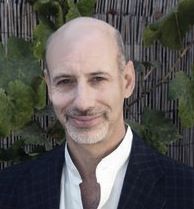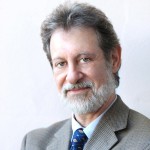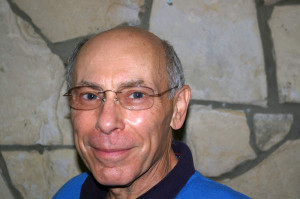Saybrook University is the world’s premier institution for humanistic studies. It is a rigorous and unique learner-centered educational institution offering advanced degrees in psychology, mind-body medicine, organizational systems, and human science. Saybrook’s programs are deeply rooted in the humanistic tradition and a commitment to help students develop as whole people – mind, body, and spirit – in order to achieve their full potential. Experiential learning and professional training are integral components of the transformative education offered through Saybrook’s programs.
Saybrook University is growing to bring together new disciplines and apply its humanistic perspective to a broad spectrum of practical fields.
The University comprises graduate programs divided into four cohesive schools focused on specific disciplines and career and professional outcomes:
School of Organizational Leadership and Transformation
School of Mind-Body Medicine
School of Clinical Psychology
School of Psychology and Interdisciplinary Inquiry
Our global community of scholars and practitioners is dedicated to advancing human potential to create a humane and sustainable world. We accomplish this by providing our students with the skills to achieve and make a difference, empowering them to pursue their passions and their life’s work. Our scholars and practitioners are creative, compassionate innovators pursuing new ways of thinking and doing for their professions, organizations, and communities.
Mission Statement
Saybrook University provides rigorous graduate education that inspires transformational change in individuals, organizations, and communities, toward a just, humane, and sustainable world.
Core Principles and Values
1. We value life and embrace our responsibility to facilitate the potential of every living being to thrive in a just, inclusive, healthy and sustainable world.
2. We are scholar-practitioners who seek and apply knowledge to solve problems and foster social transformation.
3. We live and conduct our affairs with integrity. We hold ourselves accountable for honoring commitments to ourselves and to one another, to Saybrook University, and to the constituencies and communities within which we live and work, including the natural world.
4. We insist upon operational and academic rigor in order to provide an exceptional educational experience for you.
5. We seek diversity because we recognize that there are many ways of knowing and there are inherent strengths in multiple perspectives.
6. We approach what we do with a systems, or holistic, perspective based on a belief in the inherent interconnection of all things.
7. We create relationships and communities built on compassion, respect, authentic voice, deep listening, reflective awareness, support and challenge leading to responsible action.
8. We are creative, risk-taking leaders who challenge assumptions and imagine new possibilities.
9. We recognize that dynamic tensions and fundamental paradoxes are essential aspects of being human and we commit to find ways to work with them productively.
10. We celebrate life, striving to bring fun and joy to our individual and collective existence.
 Phyllis F. Mitz, M.A. has enjoyed a flourishing astrology practice for over 20 years. Using her unique blend of astrology, psychology (in which she holds her Master’s Degree) and spirituality, (in which she is pursuing a Doctorate Degree) Mitz has counseled thousands of people from all walks of life, including celebrities, politicians, and corporate executives, on the best ways and times to find success in life, love and work.
Phyllis F. Mitz, M.A. has enjoyed a flourishing astrology practice for over 20 years. Using her unique blend of astrology, psychology (in which she holds her Master’s Degree) and spirituality, (in which she is pursuing a Doctorate Degree) Mitz has counseled thousands of people from all walks of life, including celebrities, politicians, and corporate executives, on the best ways and times to find success in life, love and work. Michael Gellert is a Jungian analyst practicing in Los Angeles and Pasadena, California. He treats individuals and couples and offers a psychotherapy group and a writing workshop. He was formerly Director of Training at the C. G. Jung Institute of Los Angeles, where he is currently a research instructor. He has also been a humanities professor at Vanier College, Montreal, and a lecturer in religious studies at Hunter College of the City University of New York. Prior to living in Los Angeles he lived in New York City, where he supervised District Council 37’s Personal Service Unit Outreach Program, an employee assistance program for employees of the City of New York.
Michael Gellert is a Jungian analyst practicing in Los Angeles and Pasadena, California. He treats individuals and couples and offers a psychotherapy group and a writing workshop. He was formerly Director of Training at the C. G. Jung Institute of Los Angeles, where he is currently a research instructor. He has also been a humanities professor at Vanier College, Montreal, and a lecturer in religious studies at Hunter College of the City University of New York. Prior to living in Los Angeles he lived in New York City, where he supervised District Council 37’s Personal Service Unit Outreach Program, an employee assistance program for employees of the City of New York. Dr. Erel Shalit is a Jungian psychoanalyst in Israel. He is a training and supervising analyst, and past President of the Israel Society of Analytical Psychology (ISAP).
Dr. Erel Shalit is a Jungian psychoanalyst in Israel. He is a training and supervising analyst, and past President of the Israel Society of Analytical Psychology (ISAP). Lionel Corbett MD, University of Manchester, England; Diplomate in Psychological Medicine; Diplomate Jungian Analyst, C.G. Jung Institute of Chicago is a British-trained psychiatrist and Jungian analyst, Dr. Corbett is particularly interested in the synthesis of psychoanalytic and Jungian ideas. His primary dedication has been to the religious function of the psyche, especially in the way in which personal religious experience is relevant to individual psychology, and to the development of psychotherapy as a spiritual practice. He is the author of “The Religious Function of the Psyche,” and “Psyche and the Sacred: Spirituality Beyond Religion.”
Lionel Corbett MD, University of Manchester, England; Diplomate in Psychological Medicine; Diplomate Jungian Analyst, C.G. Jung Institute of Chicago is a British-trained psychiatrist and Jungian analyst, Dr. Corbett is particularly interested in the synthesis of psychoanalytic and Jungian ideas. His primary dedication has been to the religious function of the psyche, especially in the way in which personal religious experience is relevant to individual psychology, and to the development of psychotherapy as a spiritual practice. He is the author of “The Religious Function of the Psyche,” and “Psyche and the Sacred: Spirituality Beyond Religion.”